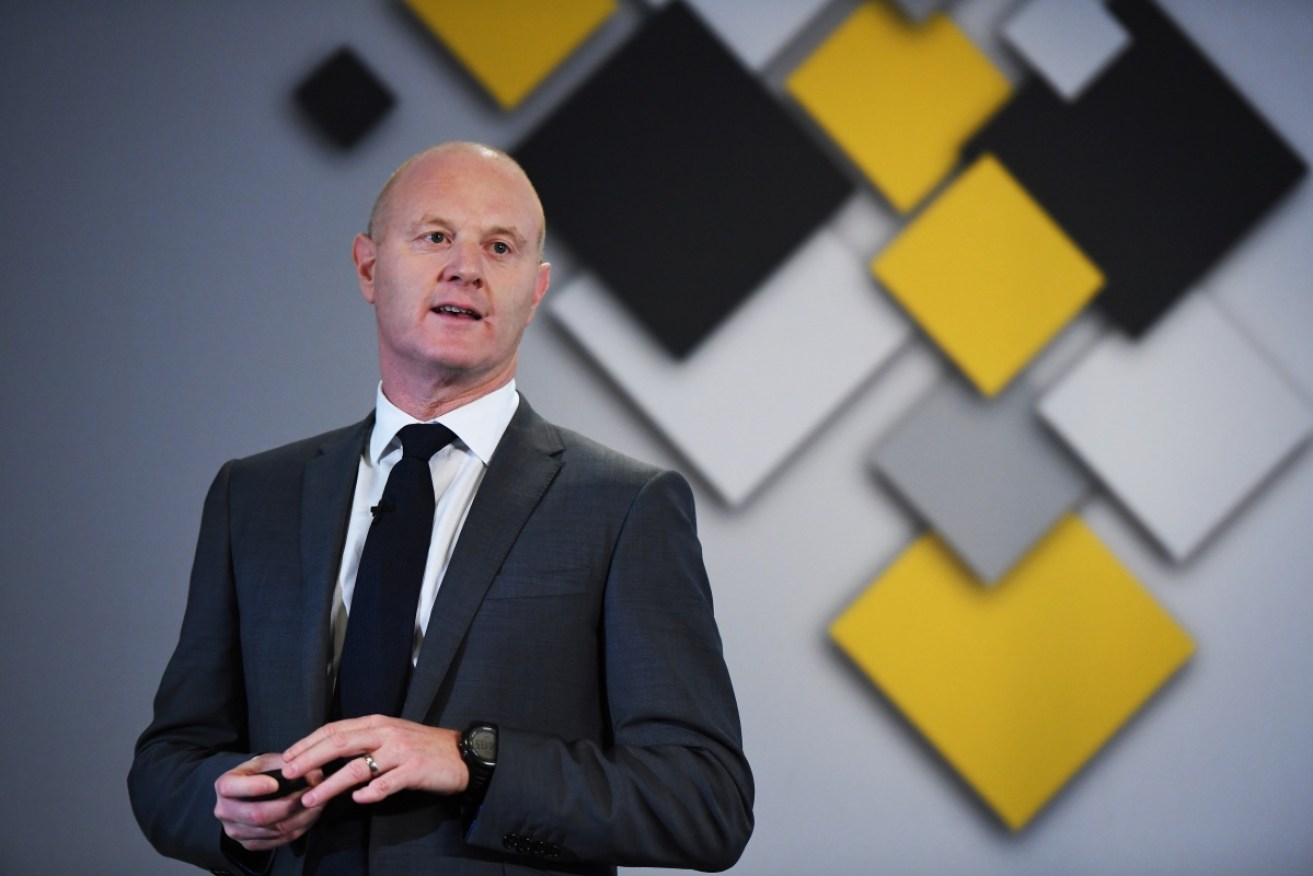Which bank chair didn’t go far enough? Ms Livingstone we presume


CBA's soon to be 'retired' chief executive Ian Narev. Photo: Getty
The bombshell announcement by Commonwealth Bank chair Catherine Livingstone that her embattled CEO Ian Narev would be “retiring” should have marked a high point for corporate governance and accountability. Unfortunately, Ms Livingstone chose to pull her punches.
Mr Narev’s departure by June next year, she explained, was part of the bank’s “succession process”.
The long goodbye comes as CBA finds itself embroiled in a money-laundering scandal, the latest in a series of debacles on his watch.
To describe Mr Narev as teflon-coated is an understatement.
Having repelled the bank’s financial planning scandal with solemn vows to correct systemic cultural and management flaws, the CommInsure scandal soon followed, seemingly confirming a corrosive culture at the bank.
At issue is not the values or integrity of Mr Narev, the former McKinsey & Co partner who joined CBA in 2007 as Group Head of Strategy and went on to become CEO in 2011.
The question is one of accountability. If modern corporate CEOs can lay claim to “globally competitive” mega-million-dollar salaries – to the ongoing disquiet of the community – then surely the level of accountability should be equal to the size of the remuneration.
The money-laundering scandal was a bridge too far for the board, and one imagines for Ms Livingstone herself, who became CBA chair in January.
Ms Livingstone has won plaudits for cutting Mr Narev loose. The move has been greeted by some as a welcome sign of accountability at the top. But that’s an interpretation to be made rather than an explicit fact.
Good corporate governance demands more than a wink and a nod.
The board had an opportunity to send an unambiguous message that the CEO was being held responsible for the latest systemic failure at the bank. Unfortunately, there is nothing in Ms Livingstone’s “succession” statement to suggest Mr Narev has incurred the displeasure of the board.
“Succession planning is an ongoing process at all levels of the bank,” she said in her official statement. “In discussions with Ian we have also agreed it is important for the business that we deal with the speculation and questions about his tenure.”
In fact, Ms Livingstone went out of her way to distance news of Mr Narev’s departure from the latest scandal, telling a media briefing: “Nothing has changed; we have full confidence in Ian as CEO.”

CBA chair Catherine Livingstone acted after the bank’s latest scandal. Photo: AAP
Big banks often justify their unseemly mega-profits by portraying themselves as being among the best-run banks in the world. Under Mr Narev’s leadership CBA has been less than a well-oiled machine.
But long overdue changes may be on the horizon. The board under Ms Livingstone has shown itself to be more assertive than in recent years.
Its response to the money-laundering scandal has been uncommonly swift. It has cancelled short-term bonuses for bank executives and cut directors’ fees following the revelations that the bank had failed to report 53,700 suspicious transactions to financial intelligence agency AUSTRAC.
Mr Narev’s annual remuneration for 2016-17 was reduced from $8.8 million to $5.7 million.
The board has also established a sub-committee to investigate the money-laundering blunder, which one expects will uncover executive and structural shortcomings.
More’s the pity the board has not been as willing to look into the bank’s other failings in the past.
It is not the board’s role to become a participant in the operations of a company. But when those operations run off the rails – placing at risk market and consumer confidence – a board is entitled and indeed obliged to ask questions.
More importantly, a board needs to satisfy itself that failings have been identified and rectified.
It is unclear if the CBA board, prior to Ms Livingstone’s appointment, took the interest it needed to, or whether it simply accepted Mr Narev’s assurances that everything was in order.
Things will be different under Ms Livingstone, that much is clear from her response to the money-laundering scandal. Unfortunately she stopped short of declaring that the buck stopped with Mr Narev, particularly as the bank risks millions of dollars in fines.
Ms Livingstone has a big job before her. CBA has a deeply flawed culture, ineffective management, failing systems and processes and a deeply entrenched arrogance.
It is, in short, dysfunctional. A leviathan bank too big to fail has proven too big to manage under Mr Narev.
Choosing the bank’s next CEO may be one of the most important decisions Ms Livingstone ever makes.
Leo D’Angelo Fisher is a former associate editor and columnist with BRW and columnist for the Australian Financial Review. He was also a senior writer at The Bulletin magazine.








